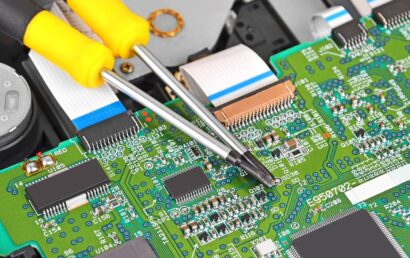Titanium Can Help Improve Human Health
Titanium was used in dentistry as early as the 1940s. In the 1950s, it was introduced in surgeries. The medical world saw the success titanium provided in dental processes and jumped on board. It is now used in instrumentation, internal body devices, internal fixation, and prosthetics. For biomedical implants, it is used from head to toe. Knee, hip, elbow, and shoulder replacements, toe implants, pacemakers, spinal fusion cages, false eye implants, bone conduction hearing aids, and neurosurgery all make use of titanium. But it doesn’t stop there.
Why is titanium used in the body? The keyword in this partnership is “biocompatibility”. Biocompatibility can be affected by surface characteristics such as the following:
- Wetting or hydrophobicity
- Binding sites
- Steric hindrance
- Surface texture
To create an ideal cellular response, those features are optimized. Titanium nitride (TiN) is used to coat some parts of surgical instruments and medical implants.
Why Is Titanium So Compatible?
The biocompatibility of titanium is due to its high fatigue limit, its resistance to corrosion from bodily fluids, and more. In the presence of oxygen, a protective oxide film forms naturally. This gives titanium, even in the harshest physical environment, the ability to endure. The oxide film that forms is chemically impermeable, insoluble, and strongly adherent. This means that between the surrounding environment and the metal, reactions are prevented.
What Gives Titanium Its Edge?
The high dielectric constant of titanium’s surface oxide gives it the ability for osseointegration. Other metals are outdone by titanium in part because, in order for them to stay attached, an adhesive must be used. But not with titanium. It has the ability to physically bond with bone. To break bones bound by titanium, a much higher force is needed. Implants using titanium last longer. This makes titanium superior to many alternatives.
Biomaterial Surface Properties
An important role is played by a biomaterial’s surface properties. They can determine cellular response to the material (proliferation and cell adhesion). Titanium’s high surface energy and microstructure allow it to induce angiogenesis. In the osseointegration process, this is crucial.
Medical vs. Industrial
Of course, the medical world is not the only fan of titanium. As mentioned in the beginning of this piece, the world of dentistry knew about titanium a decade before medical professionals took advantage of its usefulness. But it is also used in industrial settings. Frequently, to enhance its innate powers, it is alloyed with metals such as iron, aluminum, and more. These types of alloys are commonly used in aerospace applications. Even in its unalloyed form, and despite the fact that it is 45% lighter than other types of steel, titanium can match their strength. For high performance applications, it is a key choice with excellent properties of corrosion resistance. Medical devices, military applications, jet engines, electronic goods, and more, all benefit from the properties of titanium.
If titanium thermal spray sounds like something you’d like to know more about, contact one of the knowledgeable people at A&A Coatings. We have been serving nearly every industry known to humankind for more than 70 years. If it has to do with thermal spray, we are familiar with it.



